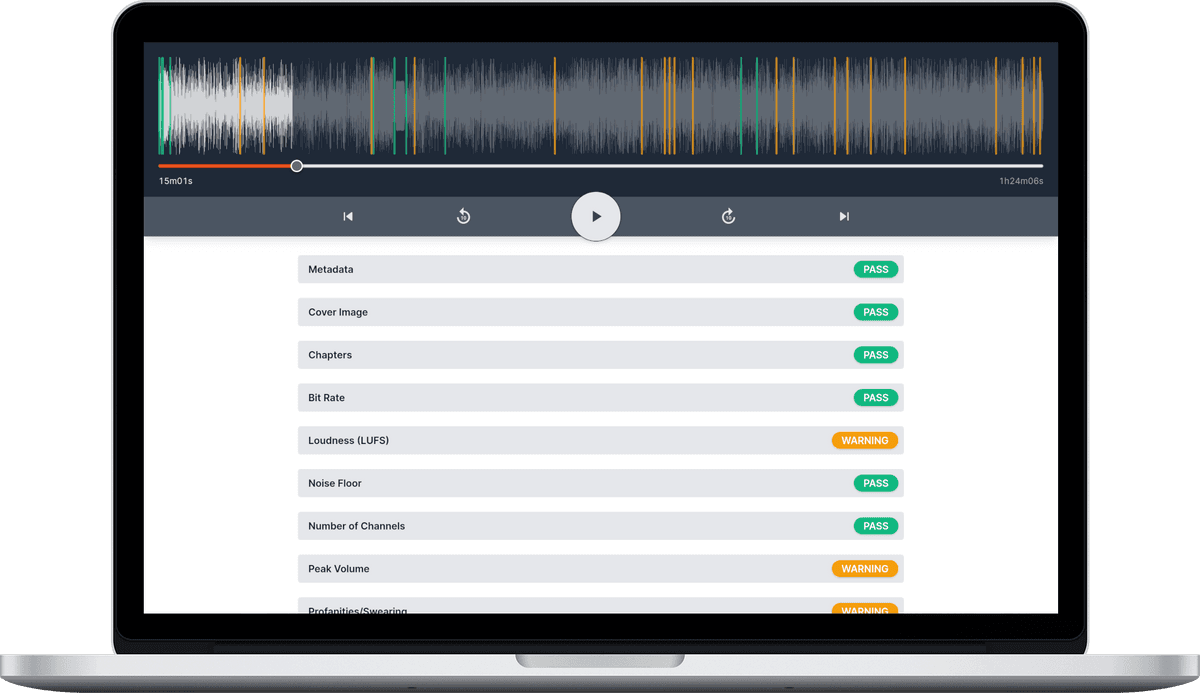Vicki Davis, 10 Minute Teacher podcast
![]() Damian Moore, Published: 31 May 2024
Damian Moore, Published: 31 May 2024
We spoke to Vicki Davis, host of the “10 Minute Teacher” podcast, about how she manages to release new episodes 5 days-a-week and how Audio Audit lets her switch between software and AI tools whilst keeping audio quality consistent.
- Running for 7 years
- 831 episodes
- 7 million downloads
- Averages over 8,000 listens per episode
- Recent episodes get about 7,000 to 20,000 listens
- Show is between 7 to 18 minutes
- All shows now produced in house
Introduction
The “10 Minute Teacher” podcast is a show aimed at teachers, innovators, leaders — the “worker bees” of schools. It gives practical tips on teaching specific subjects and explores how to get children to enjoy learning in their own individual way. She often hosts guests on the show and releases new episodes 5-days-a-week, whilst also teaching full time. The episodes combine interviews with other educators and knowledge sharing from the classroom.
Vicki lives in Georgia, USA, and has been a classroom teacher since 2002. As an IT Director, Computer Science, and Digital Tech teacher, she holds multiple education influencer and teaching awards. She started the “Cool Cat Teacher” blog in 2005, now houses over 6,000 posts. In 2013 she began hosting a podcast called “Every Classroom Matters” which released 300 episodes and was distributed via a network. In 2017 she decided to run her own podcast in house to provide daily encouragement to teachers. Her website, publications, conversations, lesson planning and other downloads have become leading information sources for the Internet community.
Running her own podcast meant having to take on a lot of responsibility and time for management. Her husband produced the first 500 episodes, then her son produced 100. After that she outsourced the editing to an external producer but then shortly decided she wanted to do it herself.
Workflow
Her current pipeline consists of these post-production steps (after recording) in order:
- Riverside AI Editing — for quick editing of content through a text interface
- Adobe Premiere Pro — for adding bumpers and other video effects for the YouTube version
- Auphonic — for automatic EQ, filtering and levelling (improving what was originally picked up by the microphone)
- Audio Audit — for quality control and assurance
- Libsyn — for hosting
Pain Points
She credits AI tools with allowing her to edit and produce in a time-efficient manner. In the past she has also used external producers to free-up time. Despite her dedication, Vicki encountered several significant challenges:
- Inconsistent Audio Quality Across Tools
- Vicki used various AI tools for editing, such as Adobe Premiere Pro and Riverside.
- The lack of transparency in these tools’ algorithms made it difficult to achieve the desired audio standards.
- Episodes being flagged due to swearing detection
- Accent-related issues led content moderation tools to mistakenly flag her episodes as containing profanity.
- Being marked as “explicit” can penalise the reach of an episode and the podcast overall.
- Human error
- With different producers and fluctuating workflows, it’s easy for mistakes to be made or settings to change.
- Ensuring the audio met quality standards was crucial to avoid penalties from podcast platforms and provide a pleasant listening experience.
“I have used so many different tools at this point… I can’t trust any of them to accurately do what they say they’re doing.”
Solutions with Audio Audit
To address these issues, Vicki relies on Audio Audit to ensure her episodes meet the highest quality standards. Vicki will upload audio proofs to Audio Audit often several times before publishing an episode. She received a score which clearly shows if something has dropped from her usual baseline score. She can then drill down into the individual checks.
The key benefits brought about from the tool are:
- Reliable Quality Checks
- Audio Audit provided a dependable way to check the consistency and quality of podcast episodes.
- The tool’s ability to verify loudness levels and other quality metrics ensured that the audio met industry standards.
- Flexibility in Workflow
- Audio Audit allowed Vicki to adapt her workflow and use the best tools available while ensuring consistent quality.
- This flexibility was essential as AI tools and technologies evolved.
- Consistency in Listener Experience
- Ensuring consistent audio levels protected listeners from potential hearing damage and provided a professional listening experience.
- Detection of Potential Issues
- The tool’s ability to flag potential swearing due to accents helped avoid misclassification and loss of advertising revenue.
When she is happy with the check results that matter to her, she publishes the episode. The final piece of reassurance for her comes when Audio Audit detects the new episode in her feed and creates a new report based on the published episode. This final report of an episode gets delivered to her email inbox within about an hour and confirms that nothing on her publisher’s platform has messed with her audio unintentionally (e.g. magic/auto-enhancement).
“It’s like an insurance policy on the quality… you’ve completely wasted your time if you turn out a bad quality.”
Results and Reflections
- Increased Listener Satisfaction: Consistent audio quality led to a better listening experience, crucial for maintaining and growing her audience. The show needs to fit into the listeners’ life and become part of their flow.
- Efficiency: The tool saves time by quickly verifying the quality of episodes, allowing Vicki to focus on content creation and avoid technical rabbit holes.
- Improving reach: Vicki believes the algorithms used by platforms like Apple prioritise high-quality and consistent audio, which can significantly boost a podcast’s visibility and reach.
- Professionalism: Audio Audit helps Vicki’s podcast sound professionally produced, even when using contractors.
“Having a consistent level on your show is respectful of your listeners and respectful of their ears.”
Conclusion
Audio Audit has been instrumental in helping Vicki Davis maintain high-quality standards for her podcast, “10 Minute Teacher.” By providing reliable quality checks, flexibility, and consistency, the tool has significantly enhanced her workflow and ensured a professional listening experience for her audience. This case study underscores the importance of reliable audio quality tools in podcast production, especially in an era of rapidly evolving AI technologies.
You can find out more about Vicki Davis and the 10 Minute Teacher podcast here:
Photos courtesy of Vicki Davis and M. Monk

